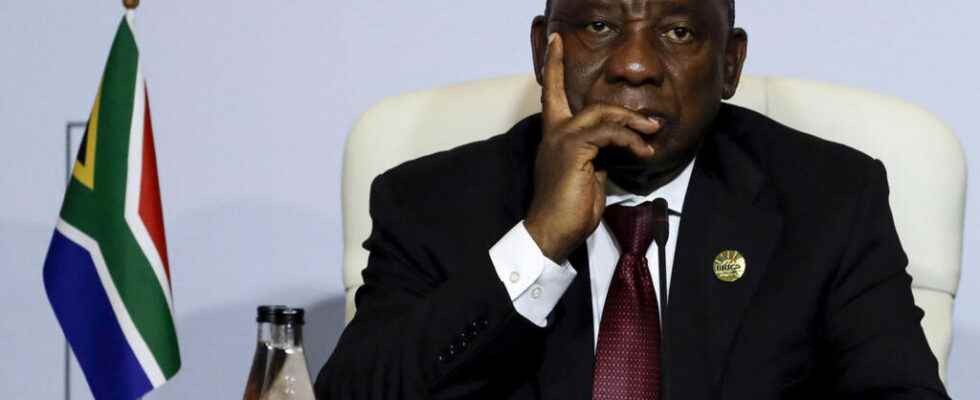At the start of the year, South Africa takes over the rotating presidency of the BRICS. The group of emerging countries, also bringing together China – by far the most powerful -, Brazil, Russia and India, sees itself as a possible counterweight to the G20.
With our correspondent in Johannesburg, Claire Bargeles
Pretoria, a member since 2011, subscribes to this policy of non-alignment, keeping ties with the United States while preaching multilateralism and refusing, for example, to take a position on the war in Ukraine. At the head of the organization for a year, President Cyril Ramaphosa should therefore continue to encourage the development of these South-South relations.
While South Africa remains, in demographic and economic terms, the smallest member of the BRICS, the country hopes above all to be able to take advantage of this rotating presidency to restore dynamism to its growth and strengthen its ties with these major trading partners. and, in the first place, the most strategic, namely China.
In exchange, the country offers an entry point to Africa for the rest of the group who wish to develop their influence on the continent. Pretoria also intends to emphasize ” the growth potential of the BRICS-Africa economic partnership “, according to the Minister of Foreign Affairs, Naledi Pandor.
► Read also: Algeria formalizes its application to join the Brics group
South Africa will also have, during its presidency, to manage the more general question of the enlargement of the group and the incorporation of potential new members. Countries like Algeria, Argentina and Iran have already applied, while others like Saudi Arabia, Turkey and Egypt have announced their interest.
According to the South African authorities, the next summit should be held face-to-face in the country next August.
►Also read: Africa and Brics, towards a new dynamic?
